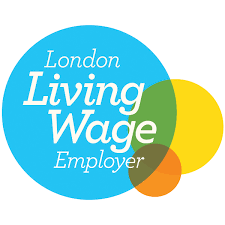
The term “Brexit” has recently become part of our everyday language. It is a combination of the words “Britain” and “Exit” and has become an easy way to refer to the forthcoming decision on whether Britain should exit the European Union (EU).
In this two part article we here at Fair Business Loans examine some of the business-related issues surrounding Brexit and explore how the decision could impact on your small business.
Background information
Britain initially joined the EU in 1973. It was then called the EEC – European Economic Commission – or the Common Market. Two years later, in 1975, under Harold Wilson’s Labour government, a referendum was held in which two thirds of UK voters voted in favour of remaining in the EU.
The EU is an economic and political partnership involving 28 European countries. Its original aim was to foster economic co-operation between countries and it has since grown to become a "single market" allowing goods and people to move around as freely as if they were in one country.
The EU has its own currency - the euro - which is used by 19 countries. It also has its own parliament and setting rules in an increasing range of areas - including the environment, transport, consumer rights and even things like mobile phone charges.
The status and power of the EU has therefore changed considerably since 1975 and there have been growing calls, from both members of the public and politicians, for another vote. Prime Minister David Cameron initially resisted such calls but has now changed his mind, and has recently negotiated various changes in Britain’s relationship with the EU.
Whether Britain continues to be part of the EU will therefore be determined by a referendum on Thursday 23rd June. The referendum – for those of voting age - will be worded "Should the United Kingdom remain a member of the European Union or leave the European Union?" and the two voting options for voters will be “Remain a member of the European Union'” or “Leave the European Union”. Whichever vote gains more than half of all votes cast will be considered to have won.
Since the referendum was announced, Brexit has constantly been in the news, and a growing number of high profile politicians, business leaders and so-called celebrities are declaring whether they will vote to Leave or Remain. This process in itself is not without controversy, such as the recent suspension of John Longworth - Director General of the British Chambers of Commerce - for suggesting that the UK's long-term prospects could be "brighter" outside the EU.
But as a small business leader how should you vote? Is there one right answer, one clear cut decision for those of us in business? Or do we need to weigh up the arguments on both the Leave and Remain sides of the Brexit camp?
To help answer this let’s first take a look at five related areas of interest:
- The UK Economy;
- Trading Opportunities;
- The UK job market;
- Job Opportunities in Europe;
- The Impact on Large Businesses.
In our next article we will look at the impact of the above areas on small businesses. The UK Economy
The most-used indicator of the health of the economy is GDP (Gross Domestic Product). It represents the monetary value of all the goods and services produced by the country during a specified period of time. A recent report by the organisation Open Europe estimates that by 2030 there is likely to be between a 0.8% permanent loss and a 0.6% permanent gain in GDP if Britain leaves the EU. This rather inconclusive finding is somewhat surprising and is summed up succinctly in the words of Lord Wolfson of Apsley Guise, Chief Executive of Next:
“In a report published today, Open Europe sets out the economic options facing Britain should we decide to leave the EU. It is a remarkably balanced document. To that extent, it will disappoint the headline grabbers on both sides of the European debate. The report unearths one profoundly important truth: if we decide to leave the EU, whether we flourish or fail will depend on the political and economic decisions we take in the wake of departure. Of itself, leaving the EU will guarantee neither success nor failure.”
So it seems that the success of the economy is dependent not so much on whether Britain stays in the EU but on other factors such as successful trade arrangements with the EU and the rest of the world, and effective deregulation back in the UK.
Trading Opportunities
The EU is currently the UK's main trading partner, comprising 52% of our total trade in goods and services. If Britain were to leave the EU it would need to negotiate some kind of a free trade deal i.e. an agreement whereby trading could take place without trade barriers or tariffs or quotas.
Those opposed to leaving the EU are concerned about Britain’s ability to hold its own in a global trading market dominated by the EU, the US and China. However, those who do want to leave are convinced that the UK would not be at a disadvantage, pointing out that countries such as the US, India, China and Japan all currently export to the EU relatively easily.
The UK job market
Opinion is totally divided on the impact that the EU has on jobs within the UK. Those who want to stay in the EU claim that millions of jobs could be lost. They cite in particular global manufacturing industries such as cars, and also the UK financial services industry.
The main reason for this concern is in terms of the UK’s credibility as a place to invest being linked to its membership of the EU. Several banks have also warned of decrease in foreign direct investment and depreciation of the pound, including Goldman Sachs and Bank of America.
However, those that want to leave the EU strongly disagree. They claim that there would in fact be a jobs boom as companies no longer have to comply with EU regulations, and that SMEs who do not trade with the EU would realise the most benefit. According to Institute for Economic Affairs: "The UK labour market is incredibly dynamic, and would adapt quickly to changed relationships with the EU."
Job Opportunities in Europe
As citizens of a member country of the EU, Britons are able to live and work in other member states without a work permit or visa.
Latest government estimates are that around 2.2 million British citizens live in other EU nations. If Britain left the EU not only could it become harder to do this but, according to former Attorney General Dominic Grieve, it could go as far as British expats in the EU being regarded as "illegal immigrants". But is this just scaremongering? Those who are in favour of leaving the EU cite The Vienna Convention on the Law of Treaties 1969 - which says that rights built up over time by individuals cannot be revoked by new treaties - as reassurance that British expats living in EU countries would not be forced to return to the UK.
The Impact on Large Businesses
The majority of large businesses are coming out in favour of staying in the EU, citing reasons such as it being easier to move money, people and products around the world. Sir Mike Rake - Chairman of BT and also recently president of the CBI (Confederation of British Industry) - goes so far as to say “there are no credible alternatives to staying in the EU”.Other business leaders seem to agree, for example Lord Bamford, the Chairman of JCB. Such business leaders claim that if Britain leaves the EU it would enable us to negotiate trade deals as our country "rather than being one of 28 nations".
The intensity of the debate was illustrated by a letter to The Times on 23rd February in which over a third of companies in the FTSE 100 have expressed their support for the campaign to stay in the European Union. It said that "Britain will be stronger, safer and better off remaining a member of the EU," and claimed that leaving the EU would threaten jobs, deter investment in the UK and put the economy at risk.
Its 198 signatories represented companies such as BT, Marks & Spencer, Vodafone and Heathrow and Gatwick airports. However, other companies such as Tesco, Sainsbury's, RBS and Barclays, did not sign.
So, in most of the above areas opinion is very divided as to whether or not Brexit would be a positive move. In our next article we will look more closely at the impact of the Brexit decision on small businesses.




